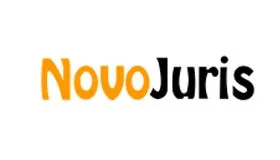Startups, Are you raising VC money? Here is your ESOPs checklist
Thursday October 20, 2011 , 3 min Read

ESOPs Series for Startups by Legal Experts at NovoJuris In this fourth part of the series on ESOP, we’ll discuss about how Venture Funds view Employee Stock Option Plan (ESOP).
Almost always VC's investment is on a fully-diluted-basis (FDB for short). FDB means the number of shares that the company allots to the investor is calculated assuming that all outstanding convertible securities are converted, outstanding stock options are assumed to have been exercised, any outstanding commitment to issue shares at a future date is assumed to have been issued. i.e. all commitments on the share capital is deemed to have occurred and then the number of shares to be issued to the VC are arrived at.
This actually means that the shareholding dilution happens at the promoter group and by the investor. If the ESOP pool is carved out ‘after’ the investment, then the investor would be diluted, but the investor will not like it.
A founder who gets a smart attorney, would:
- Try and keep a smaller ESOP pool size for the calculation on Fully Diluted Basis.
- At the time of an Exit any unutilized options in the pool could flow back to the promoter group.
- An ESOP for founders is texturally different from that applicable to all employees. Specially, issues like founder dissociating from with the company, could be termination or resignation for a good reason or for a cause (each of these are defined terms in the shareholder agreement, employment agreement and ESOP.
- Be sensitive about the powers granted to alter the provisions of the Plan.
- Get expert advice on the inter-links between the shareholder agreement, ESOP and employment agreement.
- Think through the benefit of the employees as well, as they have worked hard like the founders too. Think through accelerated vesting, should there be any Liquidity Event (merger, amalgamation, third party strategic sale). Should there be an actual Exercise or can there be an assumption of Exercise and the employee gets the upside for the Options. Obviously, there are tax implications. We had discussed about tax impact in the previous post.
So, who wins the ESOP race depends on the Company’s strategic goals, financial strength and performance, employees’ attitude and participation. Take an evaluated approach and probably this could be one of the best strategic moves of the startup founder.
This Series kinda gives a complete picture of ESOp Plan, taxes, implementation, nuances, negotiation strategy with VCs. One more post to complete the Series, wherein we’ll discuss legal aspects of ESOP to employees of the Indian company based outside of India and ESOP to employees of a foreign company based in India.
Disclaimer: This article is for informational purposes only and is not a legal advice or opinion.
About NovoJuris







